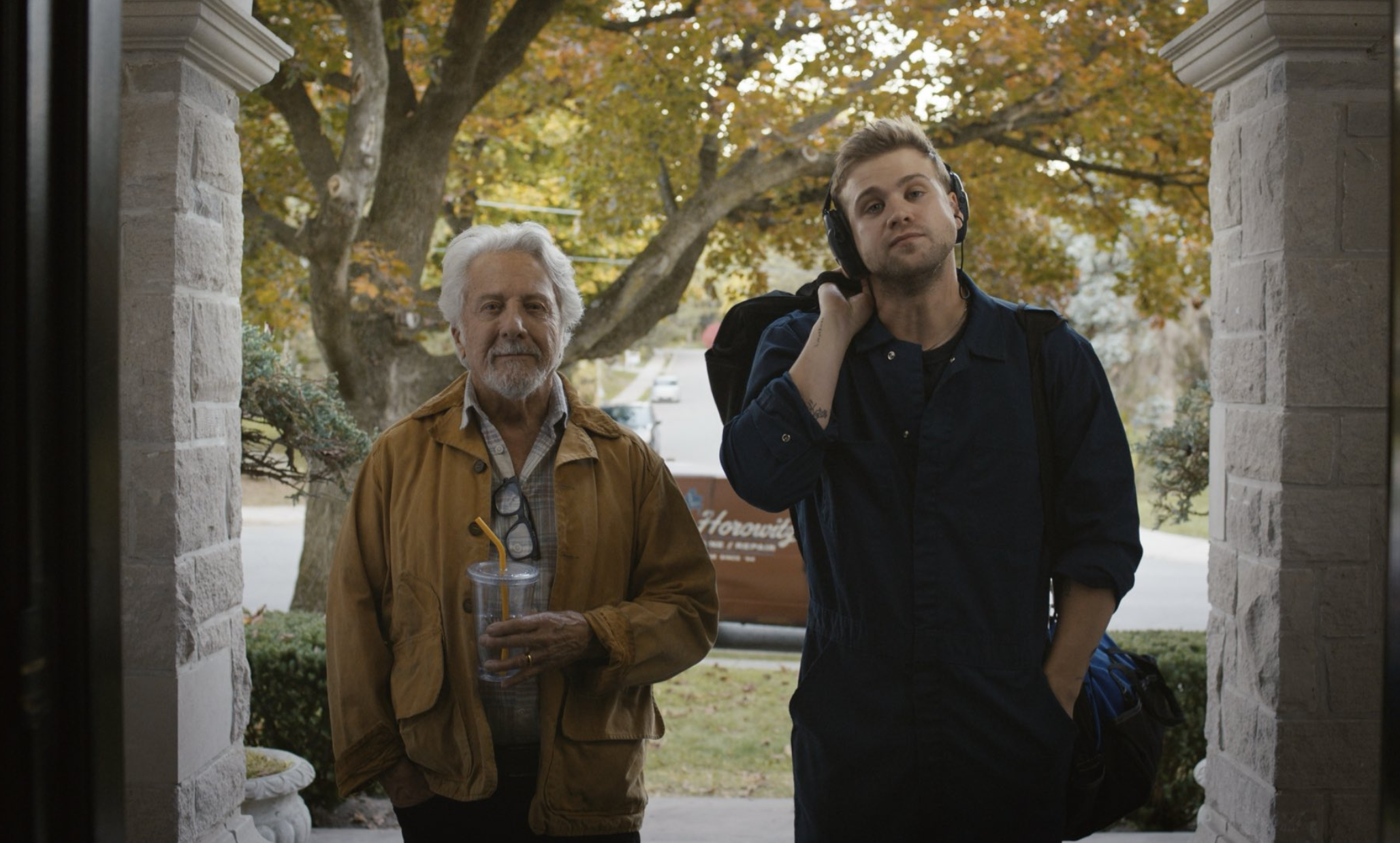'Tuner' Review: This New Thriller Reaches a High Pitch [TIFF 25]
oscar-winning documentarian daniel roher makes his narrative debut, with shades of michael mann and Nora ephron
TIFF has been a launching ground for many a narrative debut, from the most acclaimed documentary filmmakers. Oscar winning documentarians such as Elizabeth Chai Vasarhelyi & Jimmy Chin, and Joshua Oppenheimer, have set something of a trend, launching Nyad and The End at TIFF 2023 and 2024, respectively. The latest link in this chain is Oscar winner Daniel Roher (Navalny) with his thriller Tuner, which follows a piano tuner’s apprentice named Niki (Leo Woodall) who uses his hearing condition and musical gifts to become an amateur safecracker following some unprecedented financial hardships.
Niki works alongside his mentor, Harry Horowitz (Dustin Hoffman), going to and fro in their company van, repairing vanity pianos for the New York elite. The chemistry between Woodall and Hoffman proves fun, with Hoffman using his renowned charisma to steal each scene he’s a part of. Despite the age and experience difference between the two, and the fact that the relationship is indeed a mentor-mentee relationship, it doesn’t quite feel like it in the film, with Niki’s skills being highlighted by Harry at every chance.
While tuning a piano for a university’s music department, Niki shares a meet-cute with graduate student Ruthie (a SUPERB Havana Rose Liu), whom he is able to impress by naming a series of notes at random with his ‘perfect pitch’. The two share a number of chance-encounters, and the chemistry proves to be the heart of the movie. Beyond just being a fun romantic pairing, Niki and Ruthie have different relationships to a more classical form of music. While a dream for both of them, only Ruthie can achieve a career in that field, which makes the relationship quite interesting, not just from an inter-personal conflict, but becomes a driving force in the third act, helping to save Tuner from genre cliches as it reaches a unexpected climax.
Elsewhere, amidst sudden financial hardships, Niki must moonlight as a safecracker, reluctantly teaming up with crooked security contractor Uri (Lior Raz) and his team to stealthily rob the safes of New York’s wealthy, taking smaller things like watches or jewelry, that their clients may be less likely to notice. It’s in these portions of the movie that the earlier Michael Mann comparison becomes especially apt, with obvious shades of Thief being found here. However, Roher isn’t just interested in rehashing the obvious pastiche comparisons outright. The safecracking montages are superbly edited, with an added emphasis on sound editing to reflect Niki’s hyperacusis. While the film never reaches the intense heights of something like Sound of Metal in this regard, the focus on sound and disability don’t feel as if the condition is being exploited in the thriller structure. While Roher and the technical team clearly relish the safecracking scenes, and rightfully so, Woodall consistently does a good job at playing Niki’s quiet remorse.
Tuner does exist in a weird place tonally, managing to exist sufficiently in the thriller genre enough to warrant being lumped into it, but also feels kind of light and breezy, which does not come at the expense of tension or stakes. Sure, there’s a brief ‘honeymoon’ period as there is in any good heist/crime caper, where we get to see that the protagonists are in fact good at their jobs, and the period is accentuated by the great chemistry between Woodall and Rose Liu, especially due to the latter. Roher’s documentary background could be why this film is able to feel so succinct in a ever-homogenizing genre. Tuner isn’t interested in being some large, set-piece heavy thriller, and leans heavily into how the smallest of details in the smallest of cons can be intriguing, allowing for a real burst of character and tangibility to reverberate through the whole thing. The film occupies another weird space, in festival programming. While the film works well enough to play to any audience, it isn’t quite a full-on arthouse film, nor a disposable thriller. It’s very much its own thing.
While music is a core component of the film, namely, piano music, almost all piano heard in the film remains diegetic. This is a detail that might go unnoticed on a first watch, but becomes very interesting when taking it into consideration with the rest of the film. Composer Will Bates’ score sports distinct jazz and techno-sounds, channeling the aforementioned Thief, and works well to differentiate the two halves of Niki’s life, further accentuating the central conflict of the film. Bates also uses drums and other forms of percussion, even for more intimate and heartfelt scenes, which would prove distracting under a lesser composer.
Purely on paper, Tuner may not read as something that a documentary veteran like Daniel Roher would be able to slide into with such ease. After seeing the film, it’ll start to feel like a no-brainer why it works so well. Without being hyperbolic, it does feel like Tuner hits its high notes with a sense of assuredness, with Roher’s editorial sensibilities helping to streamline Tuner into a very sharp and effective film. With star-cementing turns from Leo Woodall and Havana Rose Liu, one can only hope this film finds the audience it deserves. This review surely won’t be the first to earmark Tuner as one of TIFF 2025’s great surprise hits, and surely won’t be the last.



